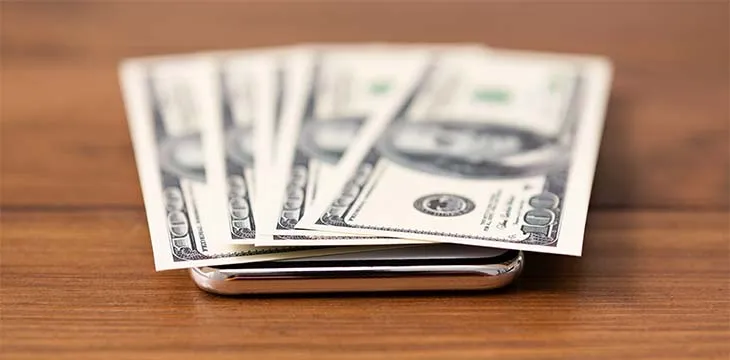|
Getting your Trinity Audio player ready...
|
As the economy moves towards a “cashless society” many pros and cons come to mind. On one hand, convenience for both the buyer and seller are a benefit. However, the primary cost is privacy. Swiping a credit card or using a payment application such as Cash App or Venmo necessarily is processed via third parties, doxing both sides information to those companies. As such, payment processing companies have immense power and responsibility in terms of securing said data and ensuring that transactions are completed.
That responsibility, however, has been taken advantage of by government, as they have written legislation to force automatic reporting certain transactions or thresholds for taxation purposes. For example, companies such as eBay, Square, and PayPal are complying with invasive regulation that mandate them to report sellers’ earnings above $600. This blanket rule is a violation of privacy and would not be enforceable or possible in a cash society. Of course, the counter is that cash transactions are infeasible in terms of shipping goods or electronic services, thus the new age of payment applications developed.
In an inflationary environment, many are turning to online side hustles to earn more income to offset rising prices. The 2021 boom in collectibles (Lego, trading card games) is evidence of that. Therefore, it is not a coincidence that government passed this regulation in hopes to tax that economic activity.
Ironically, Bitcoin was created for this purpose but has utterly failed to be a relevant in online sales. As Bitcoin (at the time) failed to solve scalability back in 2016, many online merchants rejected it as it was a worse means of online commerce than credit cards due to the high, unpredictable fees. Six years later, somehow, digital currencies BTC and Ethereum are even worse methods of payments than they were due to the increased demand and coin price, but even higher fees.
In 2022, when I do pay with cash, I have a special feeling about the transaction knowing that Big Brother isn’t looking over my shoulder. Unfortunately, due to the mass propaganda campaign about Bitcoin being meant for digital gold, HODL’ing, and inefficient as a payment method (despite the title of its white paper asserting its purpose as electronic cash), it is actually superior to physical cash. Bitcoin (BSV) has all the positive attributes, while dropping its negative ones.
Bitcoin can be transferred physically via paper or hardware wallets. I have written in the past how Bitcoin can be the most private money in history. The system was designed for peer-to-peer transactions, despite virtually no one using the protocol that way even in 2022. Peer-to-peer is an important concept that is clearly misunderstood.
When a transaction is executed between only two people as is done with physical cash, the only way for a third party to properly observe it from a legal standpoint is understanding the context. That context can only be provided from either of the two parties. When we start talking about top-down legislation that assumes context of a transaction, we have a violation of privacy and rights. Not every sale is necessarily taxable, not every sale is a capital gain at zero cost-basis.
This is the distinction between privacy and anonymity. The two parties are anonymous to all who did not participate in the transaction. To the third party, it is none of their business unless either of the two decide to disclose information in case of necessity to tax, reporting income or criminal activity. The following quote sums up the point of this article:

Source: Medium
Watch: CoinGeek New York panel, Where Does Bitcoin’s Real Value Come From?
https://www.youtube.com/watch?v=IBAJr8vP5Bw

 07-12-2025
07-12-2025 





